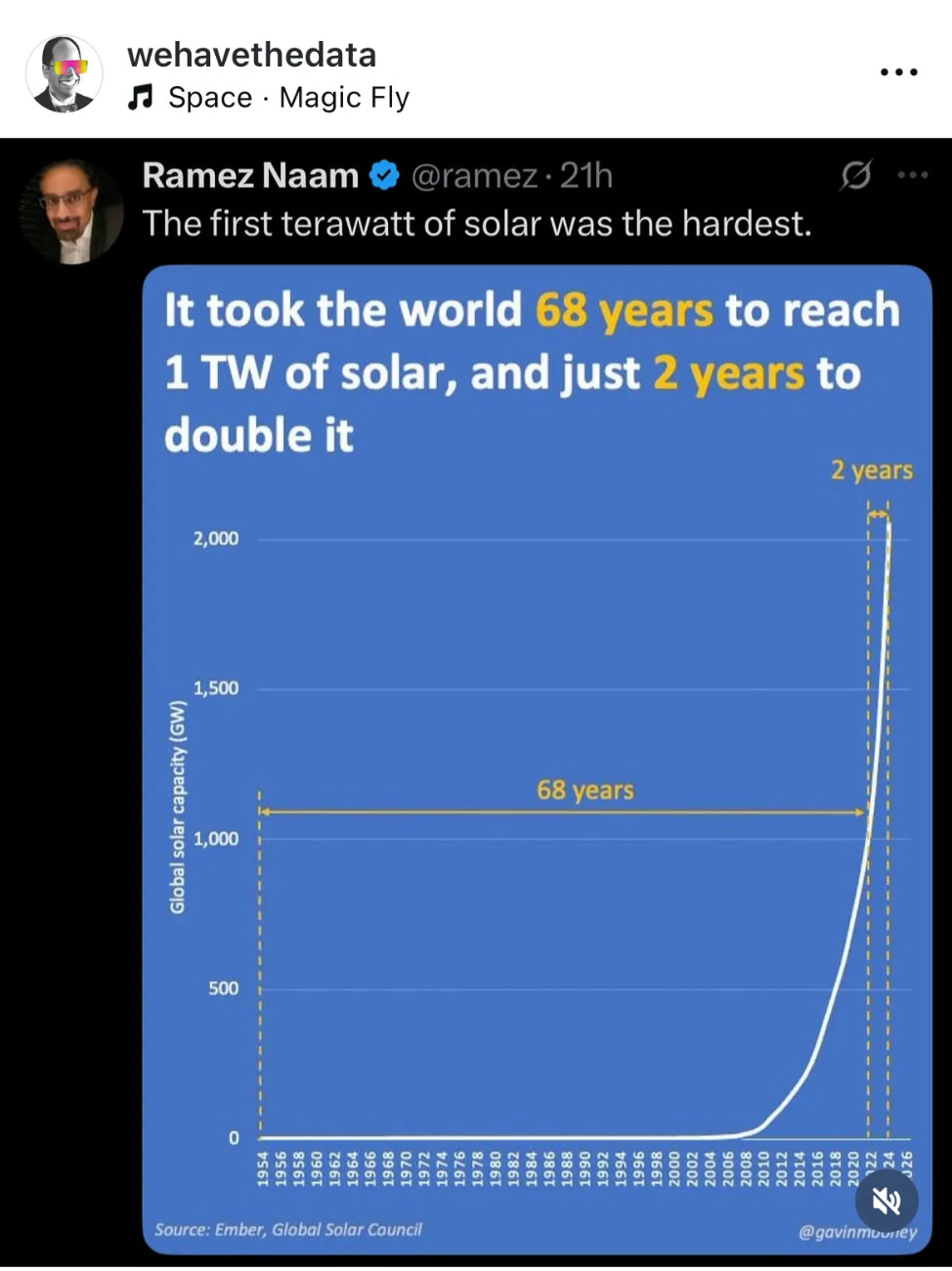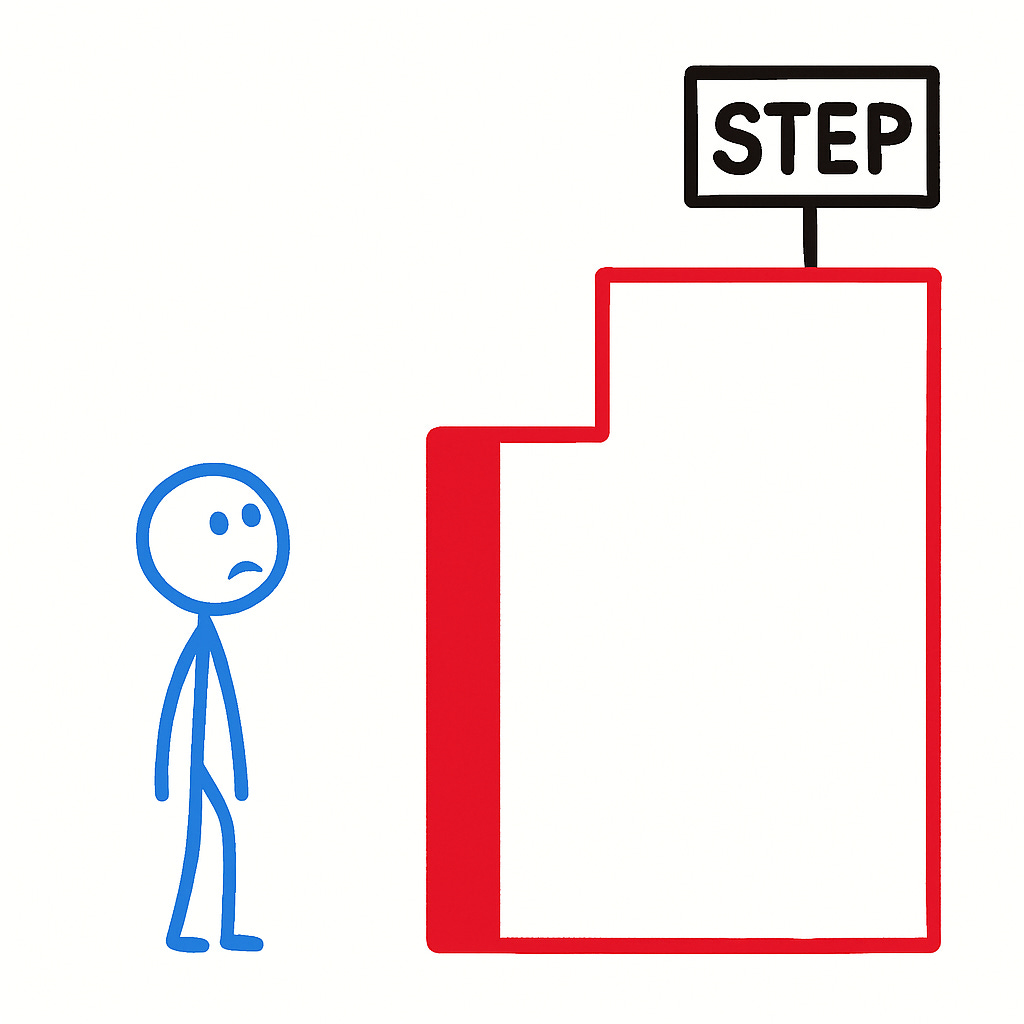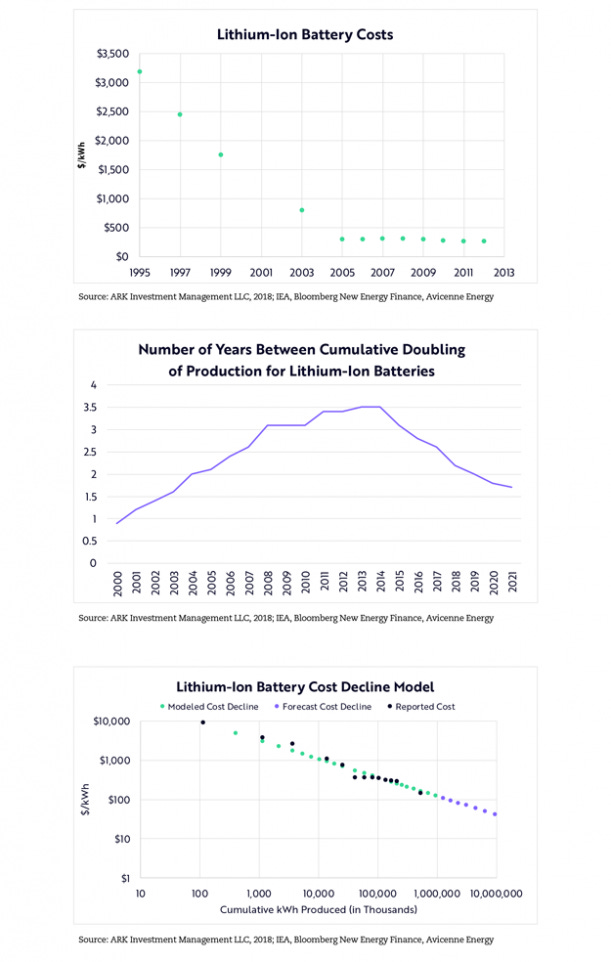I was doomscrolling on instagram and came across this:
It’s a pretty self explanatory post — but eye awakening. Why is it that it took us 68 years to reach a terawatt of solar, yet just 2 years to double it?
The answer’s simple, compounding — and it applies to human potential just as much, if not more.
"The First Step is the Hardest"
I’m sure we’re all familiar with this phrase;
And it couldn’t be more true. The hardest part in developing human growth is the first breakthrough — learning a skill, building credibility, or getting that first win.
Building the foundation.
Early progress especially, feels painfully slow because your creating an entirely new framework — things that were not at all once there, things that are new to you: habits, knowledge, systems, and confidence, the list goes on.
Infrastructure and Flywheels + Doubling Potential
Once that basis // framework is established, effort compounds. The system of success (network, skills, reputation, resources) works like solar manufacturing at scale: cost declines, and the process gets quicker.
With each iteration, you uncover flaws in what once seemed brilliant and refine systems that once felt revolutionary.
Each new step builds on what came before, so doubling becomes both faster and easier.
The first $10K saved is slow, the next $10K is probably still slow… but a bit faster haha.
This isn’t hyperbole either; Theodore Paul Wright, was a U.S. aeronautical engineer and educator, and he made up this law — called “Wright’s Law” (probably could’ve guessed that).
This law can be found in this lithium-ion batteries example:
In the early 2000s, every doubling of production took years. Costs were high, adoption was slow, and scaling felt painful. But as production piled up, the curve bent — doubling came faster, costs fell, and batteries suddenly seemed to be “everywhere.”
Compounding occurred.
Wright’s Law explains why solar, batteries, and other technologies scale so fast once they break through. Every doubling of production drives costs down, making adoption easier, which fuels the next doubling. That’s why the second terawatt of solar took 2 years instead of 68.
Now zoom out: humans operate on a similar curve. Our currency, in “cost” of achieving something (whether it be in energy, effort, time) declines with each doubling of experience.
The relative cost per unit of progress drops. You’ve built the systems, habits, and pattern recognition that make each additional doubling faster. Just like solar panels get cheaper the more we produce, your “unit cost” of achievement falls the more you practice and accumulate wins.
Building becomes easier and growth becomes exponential.
Thank You,
These are my latest thoughts! If you took the time to read all of this, I want to say thank you for your time — I’m sure your a very busy person, so your time means so much to me.
I want to use this blog experiment as a way for people to learn more about me and, hopefully, connect with more people. If you have any questions about what I’ve done, or would just like the chat — hit me up at pointone@barbaros.ca — if I don’t get back within 24 hours, coffee’s on me.




